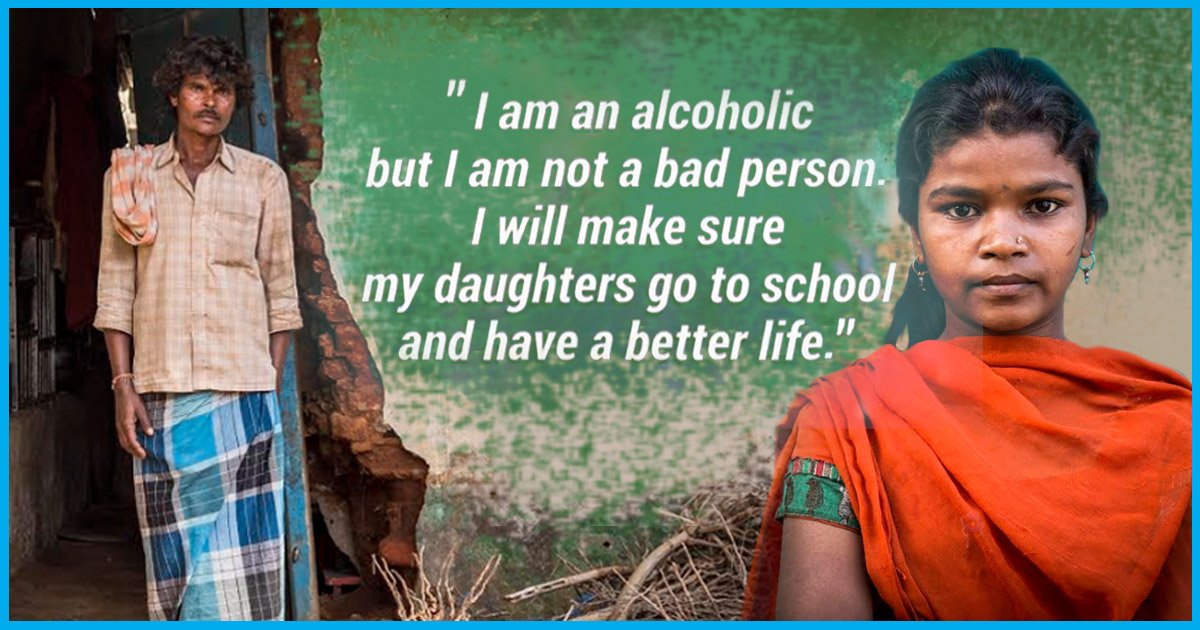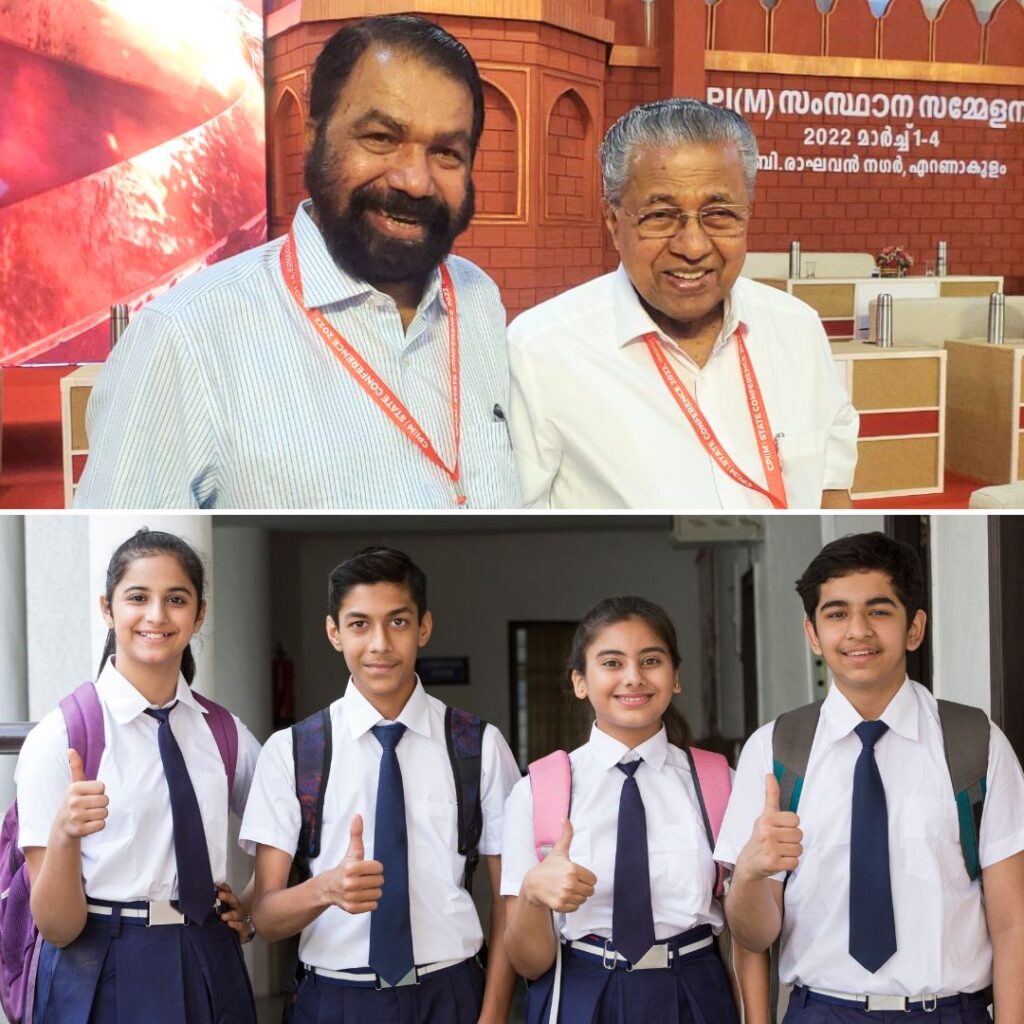He lunged forward with an unsteady grace. His cheeks were pallid. His sunken eyes longed for sleep. It was February; that time when the weather turned rogue. Averting his glance from other villagers, Lingappa leaped from one corner to another. A few older men jeered impudently. Some glared at him as they walked by. They were resentful of him; his bedraggled state bothered them. Yet, it scarcely seemed as if he paid any heed to the village or its inhabitants. Ever again, he spoke to them: those who shied away from his prying eyes. Occasionally, his wry smile irked them. They didn’t deign to answer him. They never did. A young girl walked behind him tracing his footsteps. Her name was Halamma.
“Appa,” she said hoping he’d turn around.
He walked. She trudged along. She was late for school, again. She looked like her mother. As years fell away, her father slurred his way through many crowds: unnoticed and unknown. Not today. For, his cracked soles had walked this street before. His fingers were arched as if he were clutching something. A sickle, perhaps. They barely touched his sides; his hands. Lingappa stumbled his way to the temple where we first met him. “Namaskara,” he said swaying unsteadily.
The birds had returned to Shiriganahalli. It was 9 am. Before our eyes in sudden view, the distant swarm appeared encircling the fields. In the now bright day, Lingappa’s inebriated state offered him tolerance. He was burdened, no doubt. It was pain he tried to escape. But it never escaped him. In torment, he sought his solace. “Aamele banni neevu,” he said waving his hands at us; a wry smile flitting across his face. He had seen better days. Halamma stood beside him. Into abandoned streets, where resided their home, they soon walked away.
Where crammed lanes invaded distant spaces, we walked past large doors. They were locked, all of them. The rooftops seemed deserted at this hour. So wide they stood. In layers. They projected emptiness both outside and from within. Our eyes were riveted upon them: the empty horizon, and desolate courtyards. That’s when we first heard it: the silence of the alleyways.
We found him loitering in one of streets. His withered soles didn’t bother him anymore. “Illi ella badavaru,” he said pointing at dilapidated structures occupying the edge of the village. “Nodi neevu…”
It was cluttered. And, they were everywhere: homes that barely stood up, people who never stayed on. Everyone had to leave to the fields, to towns alongside people they didn’t know. They were strangers to each other. And, it remained that way. The old were left behind. For, they had nowhere to go. In conspicuous clusters, toddlers gathered away from the hand pump. They held towels and bars of soaps in their hands. Soiled sachets were strewn all over. A little girl trundled back to the window of a tiny house. It opened to the trees in the backyard. Her muffled giggles didn’t go unnoticed. It was time for school.
It was odd to see him behind us; a shrivelled figure in white shirt. We thought we had lost him. He flinched and his forehead creased with worry. Lingappa couldn’t keep up. His feet struggled. Somewhere ahead of us in the wilderness, empty branches stirred. Dust settled on the ground as an old farmer sat beneath a tree. His fields were empty. Nothing grew there anymore.
“Why do you drink so early?” we asked him.
“Tumba tension saar,” said Lingappa with a guilty smile. Kicking pebbles aside, he whispered, “It helps me escape, I think.” It wouldn’t help him. Nor would it change anything. Perhaps, he’d end up where he began. And, he knew it. For, it was his faithful companion: failure. Yet, he told his story to anyone who listened. Holding on came easy to him. He never learnt to let go. At times, he couldn’t handle it, and it’d all fall back: the worthlessness of it all.
“Houdu, houdu…” he nodded his head and disappeared into an alleyway.
We followed him. To those who loitered in the streets, he remained invisible. He traced the trail that led him home. There were several such buildings in the lane: home to some, and shelter to others; temporary structures with permanent residents. Their ancestors had escaped their descent into vagrancy. They were landless, many of them: the people who stood in the courtyards.
“We can’t farm anywhere. We can’t afford to buy our own land. So, we have to rely on labour work,” said Lingappa. Open drains lined the street. Some women carried buckets and pots on their heads. Their children ran behind them.
Lingappa stopped walking. He turned towards us and said, “Banni….”
The lane opened to a tiny pathway near his house. It had a tiled roof. And, the walls were green. He stood at the entrance staring at its empty floor. The hall was shrouded in darkness. Its occupants remained silent. There were no doors, no windows, just a hall leading to an open kitchen. That’s where the entire family slept, and ate. That’s where his kids did their homework. In the hall. There were no cupboards or shelves. It had nothing. And, that’s how they lived. In nothingness. But it was their home.
Clothes were piled on a rope in the corner. The room opened to a small veranda. Large vessels of water were kept aside as a young girl sat on the floor scrubbing soiled dishes. She was Lingappa’s daughter. “I have two daughters,” he declared, “Both go to school.” He gestured us to follow him inside.
There were footprints on the ground, words on the walls. And, there were verses scribbled everywhere. They were in Kannada. A few faded English words could be seen in the corner. They were names: Kalamma, Pallavi, Suma. The other wall read: 30 dina galallii English kalibahudu. It was a canvas of memories. These walls. For, they had captured many years of perseverance, years of their childhood. We ran our fingers over them. Their ridges and imperfections had been etched over. In the cracks, lay creatures in nocturne. They were broken; these walls.
“My older daughter,” muttered Lingappa.
“She writes on walls.”
“Why?”
“Sometimes to learn. Sometimes to teach me. She hopes it would distract me from my alcohol addiction. So, she scribbles on them every day. She has been doing this for a while. She thinks if I learn a new language, I’d give up alcohol. I can’t stop drinking,” he said. His voice trembled. “Everyone makes fun of me. Some rebuke me all day long, you know,” he said staring at his feet, “I may be a drunkard but I won’t let my daughters suffer. I don’t trouble them at all. I make sure I don’t affect their studies in any way. And, I try not to be a burden on them. I would never do that. I wish their lives were better. I wish they didn’t have to struggle like me. I don’t know if it will be any different though. Nothing has changed in a long time. Nothing. May be we will get used to it.”
They already have. They stayed there for long. They had nowhere else to go. Their dreams never took flight. And, they never believed in them. They couldn’t afford to. It was a painful task one that required them to hope. Theirs was a timeless story one that would be forgotten, and relived.
We left. They didn’t stop us.
Lingappa stood at the front door. “I’ll come with you,” he said dragging his towel on the floor. His daughter looked on..
Story By – Akshatha Shetty | Image Credit: Piyush Goswami
This story is an effort by The Logical Indian in collaboration with Rest Of My Family towards bringing stories which need much attention.
















